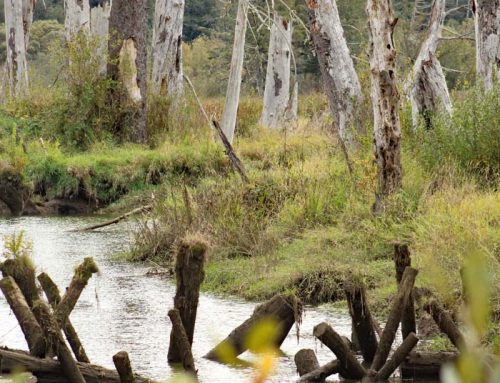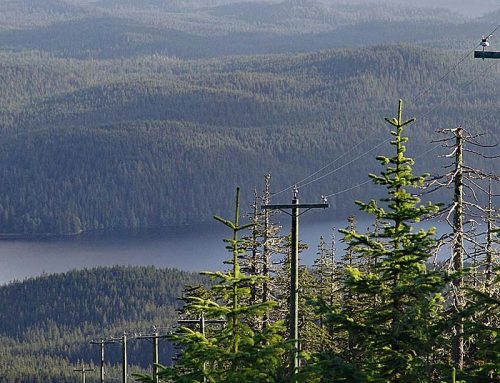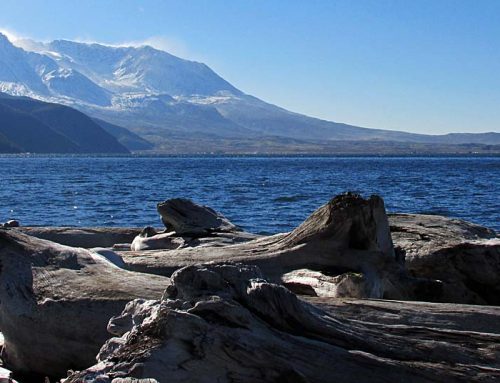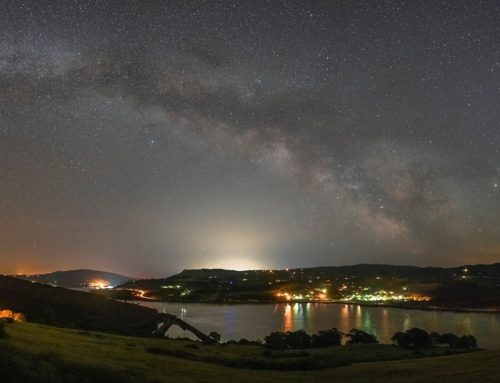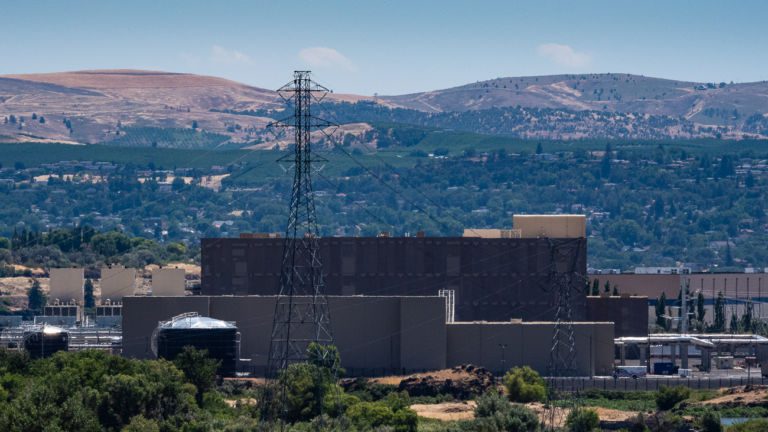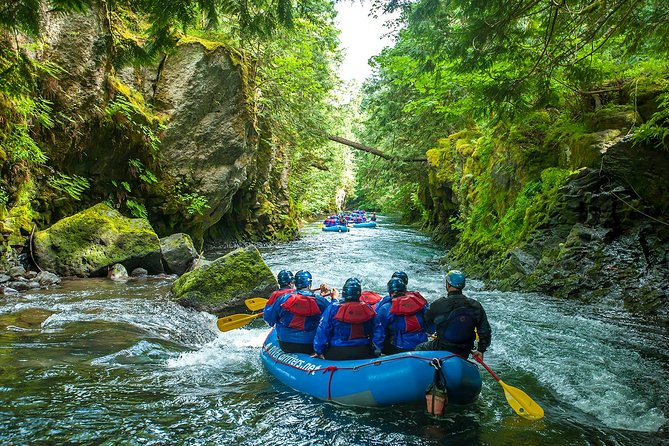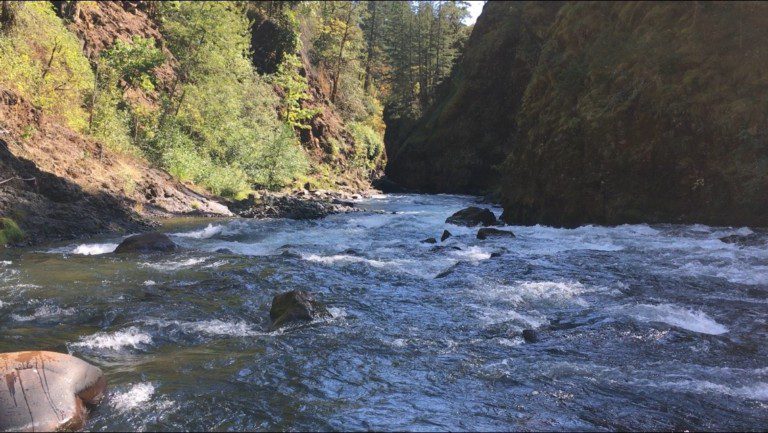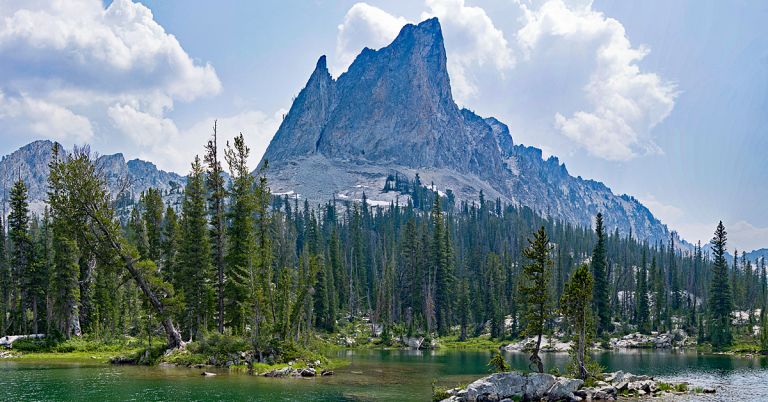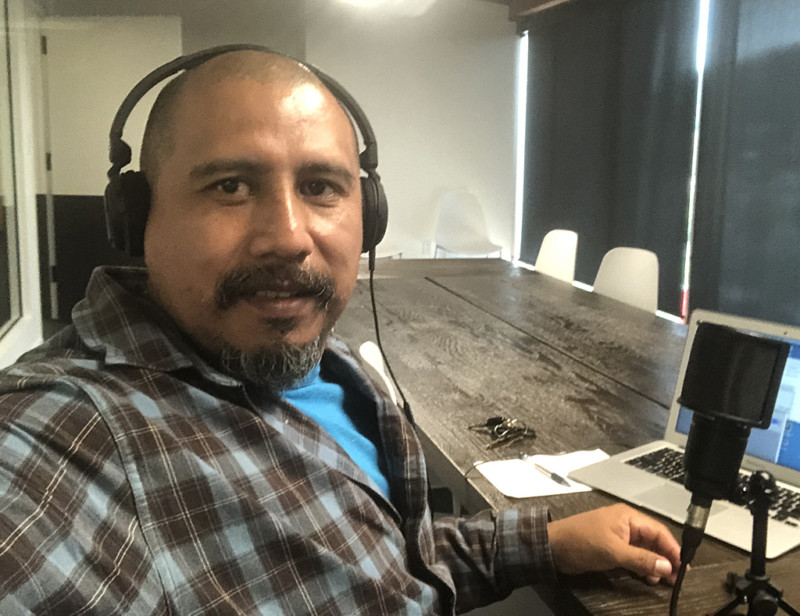
Comunidades founder Ubaldo Hernandez grew up in Mexico City. In the early 2000s he helped found Radio Tierra in Hood River, Oregon. Columbia Riverkeeper photo
With a new grant, Comunidades will engage communities of color in environmental issues affecting the Columbia River Gorge
Valerie Brown, May 14, 2020. The Gorge environmental community is expanding courtesy of a significant grant to a relatively new organization: Comunidades.
The three-year, $225,000 grant from the Group Health Foundation will enable the group to hire its first paid staff, reach out to the area’s Latinos on both sides of the Columbia River, raise environmental health awareness and press for social and political change.
Founded in 2018 by Columbia Riverkeeper senior organizer Ubaldo Hernandez, Comunidades comprises a small core of people hailing from White Salmon, Hood River, The Dalles and Parkdale. The group does not yet have an office or website.
The first order of business, says Hernandez, is educating the community to understand the variety of environmental problems it faces.
“The Latinos don’t know how they’re being affected by numerous issues,” says Hernandez.
For example, Comunidades will add its voice to the call from the Yakama Nation and environmental activist groups to clean up Bradford Island, where numerous people of color want to fish but are unable to because the fish have the highest levels of polychlorinated biphenyl compounds—known carcinogens—in the Pacific Northwest.
The island has been an indigenous fishing site for millennia but was used as a dump by the Army Corps of Engineers as it constructed the Bonneville Dam. Sediments on the island also contain lead, mercury and hydrocarbons.
Environmentalists, tribes and the states of Oregon and Washington want the EPA to designate the island a Superfund site.
Many Latinos, Hernandez says, may not understand the term “Superfund” even as they’re directly affected by pollution from such sites, of which there are many in the mid-Columbia region. The Dalles has two: the property now occupied by the railroad tie manufacturer Amerities, and the property now occupied by Google and an aluminum recycling plant.
READ MORE ON CI: Pollution From Aluminum Still an Issue in The Dalles
Hernandez intends Comunidades to engage with the community regarding air pollution from the Amerities plant, which has become a sore point in the city.
When he attended a forum sponsored by The Dalles Air Coalition about the problem, he was the only Latino there. As a next step he’s suggested the Oregon Department of Environmental Quality hold a Spanish-language forum to encourage Latino participation.
“Right now it’s on hold [because Covid-19] but we want to see if we can do a Zoom meeting,” he says.
Taking on pesticides
Another issue of concern for Comunidades is widespread pesticide exposures among agricultural workers.
Joel Iboa, chairperson of Oregon’s Environmental Justice Task Force, points out that much migrant housing is located close to agricultural fields; most food preparation is done outside; and children mostly play outside.
“The spraying of harmful chemicals near housing [makes it] pretty difficult for people to be out of harm’s way,” he says.
Iboa is looking forward to the “added capacity” Comunidades will bring to the Gorge region on these and other aspects of environmental justice in Oregon.
One way for grassroots groups to have real influence, Iboa says, is to organize members to testify before legislators on issues of concern.
In the last legislative session, organizations including Pineros y Campesinos and Beyond Toxics brought farm workers to testify in favor of a bill to prohibit aerial spraying of the highly toxic pesticide chlorpyrifos. Their testimony was effective, and the bill was close to passage in the Oregon Senate—until Republicans protested a climate change bill by walking out of the chamber and preventing a vote.
The bill’s supporters plan to re-introduce the bill.
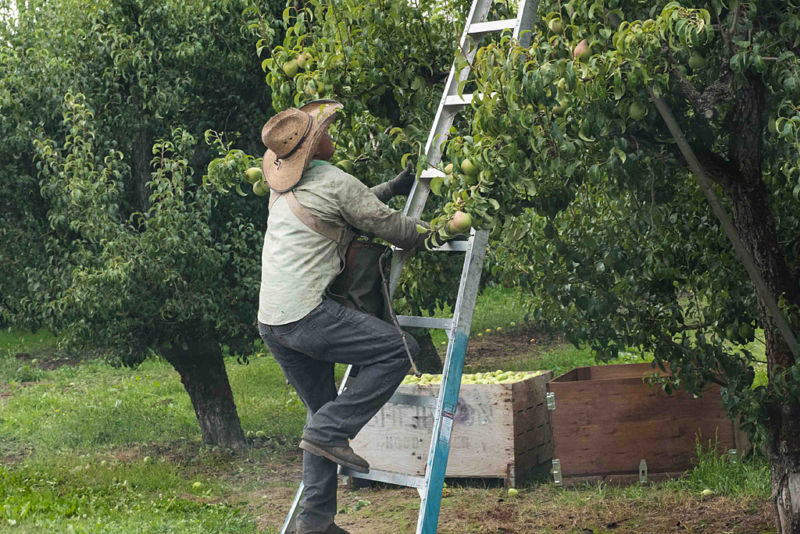
The agricultural industry is highly dependent on Latino workers. A concern is pesticide exposure for farm workers and their families. Jurgen Hess photo
Hernandez envisions Comunidades eventually adding political work to its agenda, but his first priority is to increase membership and begin building coalitions with other groups.
For communities of color, he says, it’s not possible to entirely separate environmental issues from social justice concerns because of the disparities in income, health and other aspects of life compared with majority populations.
Nowhere is this more evident than the coronavirus pandemic. According to The Oregonian, “Latinos account for 31 percent of the nearly 2,100 Oregonians with coronavirus whose ethnicity is known, even though they represent only 13 percent of the state’s total population.”
Not everyone views infectious diseases as an environmental issue, but globally, new pathogens are emerging from the disruption of ecosystems by logging, agriculture and other human intrusions. Pathogens disproportionately harm people already stressed by poor health care, low income and narrow occupational options.
Although the relationship between traditional environmental groups and environmental justice activists isn’t always comfortable, the former could benefit a great deal from bringing Latinos to their causes. A 2015 Pew Research Center analysis found that 70 percent of Latinos believe the earth is warming because of human activity. In 2014, 76 percent of Hispanics—and 84 percent of blacks—agreed that, “This country should do whatever it takes to protect the environment,” compared with 67 percent of whites.
Census figures show Hood River County’s population is about 30 percent Hispanic—a significantly higher proportion than the rest of Oregon.
“There are many Latinos who want to protect clean water, clean air and all of our natural resources, but have not engaged in traditional environmental groups,” Hernandez stated in press release. “Comunidades aims to change that.”

